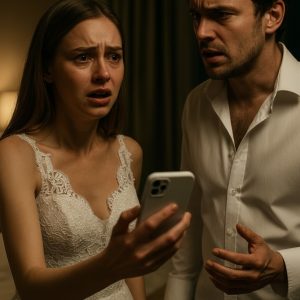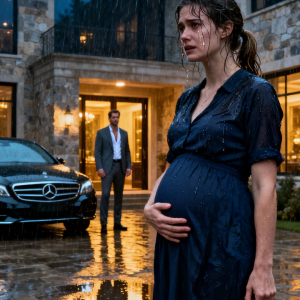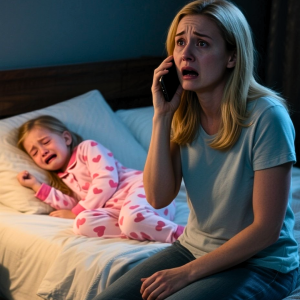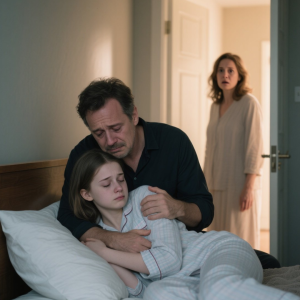
The day we buried my grandfather, the sky felt stretched tight—heavy and gray, like it had taken my grief and spread it across the clouds.
I stood motionless by his casket, accepting cold condolences from strangers who barely knew me. They touched my shoulder like I might shatter. Only Grandpa Ezra had ever truly seen me—not out of duty, but because he cared. He listened. He was there.
My mother, Lenora, was always elsewhere, busy with causes and phone calls. My father had long since vanished into alcohol, and Marianne, my sister, was a master of quiet bitterness. But Ezra? He loved me unconditionally.
After the service, the church air hung heavy with old hymns and stale coffee. I barely noticed the people murmuring around me—my thoughts were still with Ezra, trying to hold onto the feeling of that last goodbye.
Then my mother appeared beside me.

“Rhys,” she said sharply. “Come here a moment.”
She led me away from the others to a quiet corner near a stained glass window.
“You did well with Grandpa,” she began, adjusting her perfect sleeve. “I heard he left you the house. That was… generous.”
“Yeah,” I replied. “He wanted me to have it.”
Her tone shifted. “You need to sign it over to Marianne. She has kids. You’ll buy another house someday.”
I stared at her. “If Grandpa wanted her to have it, he would’ve said so.”
Her smile dropped. Her voice turned cold. “You don’t really have a choice—not if you want certain family truths to stay buried.”
I didn’t flinch. I already knew what she meant. But instead of arguing, I simply said, “I’ll think about it.”
The calls started the next day—first sweet, then demanding. Marianne sent pictures of her kids with captions like, “They’d love a garden to play in!”
Eventually, I received a legal envelope: a lawsuit.

My mother claimed I wasn’t biologically Ezra’s grandson. That during her marriage, she’d had an affair. So the house, she argued, belonged to Marianne—the “real” descendant.
I wasn’t shocked. Just insulted.
What they didn’t know was that Grandpa Ezra had known. And he’d made sure I wouldn’t have to prove my place in his heart.
In court, I carried a USB. When the screen lit up, there he was—Ezra, in his favorite chair, sunlight spilling across the floor.
“Hi kiddo,” he said warmly. “If you’re watching this, your mother’s trying to take the house. I’m not surprised.”
He explained he’d taken a DNA test, confirming I wasn’t his biological grandson. “But I don’t care,” he said. “You’re the only one who treated me like a person. That house is yours. I want it to be yours.”
The courtroom went still.
The judge cleared his throat. “The will stands. Case dismissed.”
But that wasn’t the end.
My mother had made her lie a public record, exposing her secret.

Soon, whispers spread—friends, churchgoers, even family kept their distance. The mask slipped, and no one looked at her the same.
Marianne’s husband, Tyler, filed for custody. He told me later, “She’s not fit, Rhys. The kids are doing better now.”
I invited him to bring them over anytime. “Let’s have a barbecue,” I said.
“Count on it, brother,” he smiled.
Meanwhile, I moved into Ezra’s house. Painted the porch the soft green he loved. Planted lavender. Hung his fishing photo by the door. The house smelled like thyme and memory—warmth that never asked for anything.
One Sunday, I took my dog Cooper to the cemetery. We sat by Ezra’s grave in the early light.
“I’m proud to be your grandson,” I said, hand resting on the stone.
That evening, I stirred pasta in the old pot he loved. I thought about my mother. About whether she saw him, my biological father, every time she looked at me. Was that why she kept her distance?
I didn’t know. And maybe I never would. Because I already had the only father figure I’d ever needed. Blood never made Ezra mine—love did.
And I wasn’t searching for anyone else.




